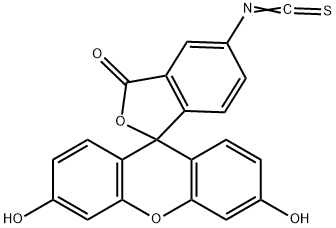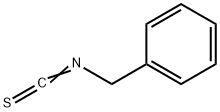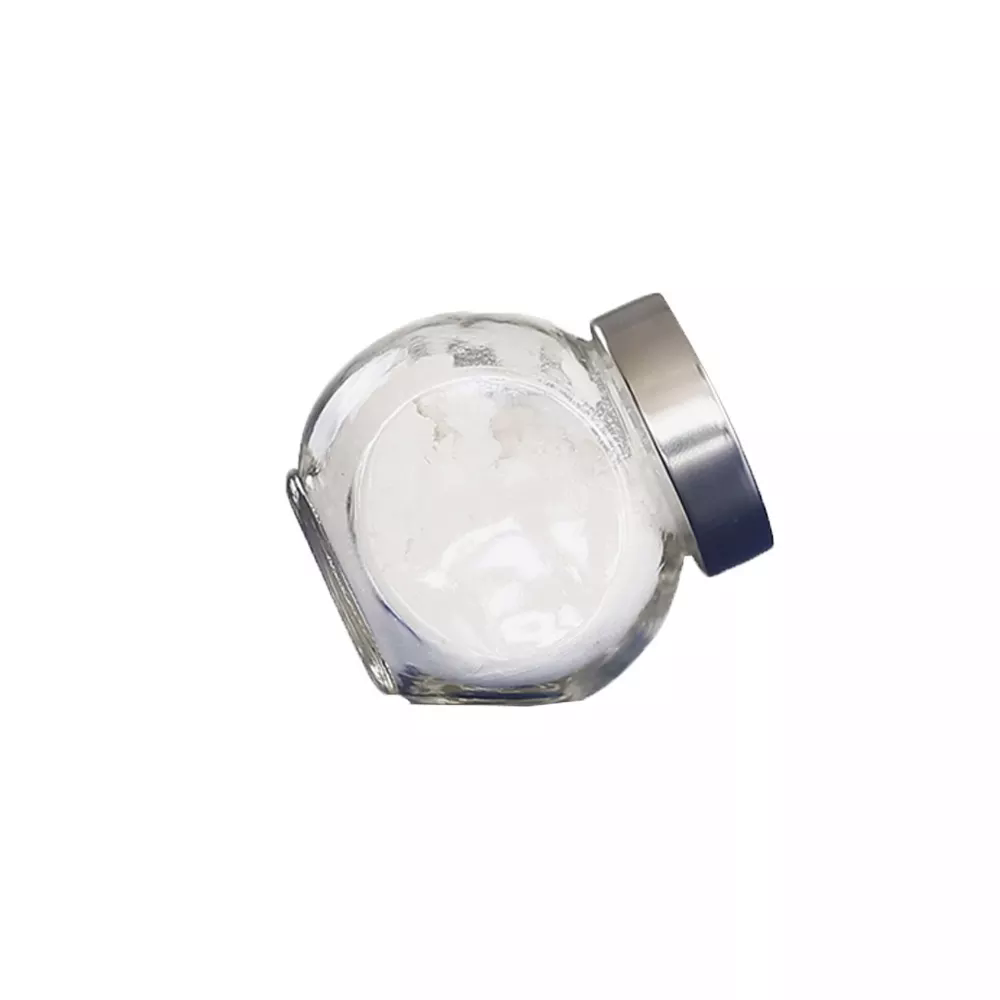4-BROMOPHENYL ISOTHIOCYANATE
- CAS NO.:1985-12-2
- Empirical Formula: C7H4BrNS
- Molecular Weight: 214.08
- MDL number: MFCD00004808
- EINECS: 628-470-8
- SAFETY DATA SHEET (SDS)
- Update Date: 2023-04-23 13:52:06

What is 4-BROMOPHENYL ISOTHIOCYANATE?
Chemical properties
white to light yellow crystalline powder
The Uses of 4-BROMOPHENYL ISOTHIOCYANATE
4-Bromophenyl isothiocyanate was used in the synthesis of 1-(4-bromophenyl)-3-ethyl-(1,2-dideoxy-D-glycero-α-D-galacto-heptofurano)[2,1-d]imidazolidine-2-thione.
Purification Methods
Recrystallise the isothiocyanate from boiling n-hexane. Any insoluble material is most probably the corresponding urea. It is also purified by steam distillation, cool the receiver, add NaCl and extract in Et2O, wash the extract with N H2SO4, dry (MgSO4), evaporate and recrystallise the residual solid. [Cymerman-Craig et al. Org Synth Coll Vol IV 700 1963, cf Dains et al. Org Synth Coll Vol I 447 1941, Beilstein 6 IV 1051, 12 II 354, 12 III 1463p, 12 IV 1519.]
Properties of 4-BROMOPHENYL ISOTHIOCYANATE
| Melting point: | 56-58 °C (lit.) |
| Boiling point: | 144-145 °C (5 mmHg) |
| Density | 1.7158 (rough estimate) |
| refractive index | 1.6070 (estimate) |
| Flash point: | >110°C |
| storage temp. | Refrigerator (+4°C) |
| form | powder to crystal |
| color | White to Orange to Green |
| Water Solubility | 11.56mg/L(25 ºC) |
| Sensitive | Moisture Sensitive |
| BRN | 878549 |
| CAS DataBase Reference | 1985-12-2(CAS DataBase Reference) |
Safety information for 4-BROMOPHENYL ISOTHIOCYANATE
| Signal word | Danger |
| Pictogram(s) |
 Corrosion Corrosives GHS05  Skull and Crossbones Acute Toxicity GHS06  Exclamation Mark Irritant GHS07  Health Hazard GHS08 |
| GHS Hazard Statements |
H302:Acute toxicity,oral H312:Acute toxicity,dermal H314:Skin corrosion/irritation H315:Skin corrosion/irritation H318:Serious eye damage/eye irritation H319:Serious eye damage/eye irritation H331:Acute toxicity,inhalation H334:Sensitisation, respiratory H335:Specific target organ toxicity, single exposure;Respiratory tract irritation |
| Precautionary Statement Codes |
P261:Avoid breathing dust/fume/gas/mist/vapours/spray. P280:Wear protective gloves/protective clothing/eye protection/face protection. P309:IF exposed or if you feel unwell: P310:Immediately call a POISON CENTER or doctor/physician. P303+P361+P353:IF ON SKIN (or hair): Remove/Take off Immediately all contaminated clothing. Rinse SKIN with water/shower. P305+P351+P338:IF IN EYES: Rinse cautiously with water for several minutes. Remove contact lenses, if present and easy to do. Continuerinsing. P342+P311:IF experiencing respiratory symptoms: call a POISON CENTER or doctor/physician. |
Computed Descriptors for 4-BROMOPHENYL ISOTHIOCYANATE
| InChIKey | XQACWEBGSZBLRG-UHFFFAOYSA-N |
New Products
(S)-3-Aminobutanenitrile hydrochloride 4-Methylphenylacetic acid N-Boc-D-alaninol N-BOC-D/L-ALANINOL Tert-butyl bis(2-chloroethyl)carbamate 3-Morpholino-1-(4-nitrophenyl)-5,6-dihydropyridin- 2(1H)-one Furan-2,5-Dicarboxylic Acid Tropic acid 1-Bromo-3,5-Di-Tert-Butylbenzene S-2-CHLORO PROPIONIC ACID ETHYL ISOCYANOACETATE 2-Bromo-1,3-Bis(Dimethylamino)Trimethinium Hexafluorophosphate 4-IODO BENZOIC ACID 3-NITRO-2-METHYL ANILINE 1-(2,4-DICHLOROPHENYL) ETHANAMINE (2-Hydroxyphenyl)acetonitrile 4-Bromopyrazole 2-(Cyanocyclohexyl)acetic acid 4-methoxy-3,5-dinitropyridine 1-(4-(aminomethyl)benzyl)urea hydrochloride 2-aminopropyl benzoate hydrochloride diethyl 2-(2-((tertbutoxycarbonyl)amino) ethyl)malonate tert-butyl 4- (ureidomethyl)benzylcarbamate Ethyl-2-chloro((4-methoxyphenyl)hydrazono)acetateRelated products of tetrahydrofuran








You may like
-
 1985-12-2 4-Bromophenyl isothiocyanate-97% 99%View Details
1985-12-2 4-Bromophenyl isothiocyanate-97% 99%View Details
1985-12-2 -
 1985-12-2 99%View Details
1985-12-2 99%View Details
1985-12-2 -
 4-Bromophenyl isothiocyanate CAS 1985-12-2View Details
4-Bromophenyl isothiocyanate CAS 1985-12-2View Details
1985-12-2 -
 4-Bromophenyl Isothiocyanate CAS 1985-12-2View Details
4-Bromophenyl Isothiocyanate CAS 1985-12-2View Details
1985-12-2 -
 1975-50-4 98%View Details
1975-50-4 98%View Details
1975-50-4 -
 2-HYDROXY BENZYL ALCOHOL 98%View Details
2-HYDROXY BENZYL ALCOHOL 98%View Details
90-01-7 -
 14714-50-2 (2-Hydroxyphenyl)acetonitrile 98+View Details
14714-50-2 (2-Hydroxyphenyl)acetonitrile 98+View Details
14714-50-2 -
 118753-70-1 98+View Details
118753-70-1 98+View Details
118753-70-1
Statement: All products displayed on this website are only used for non medical purposes such as industrial applications or scientific research, and cannot be used for clinical diagnosis or treatment of humans or animals. They are not medicinal or edible.